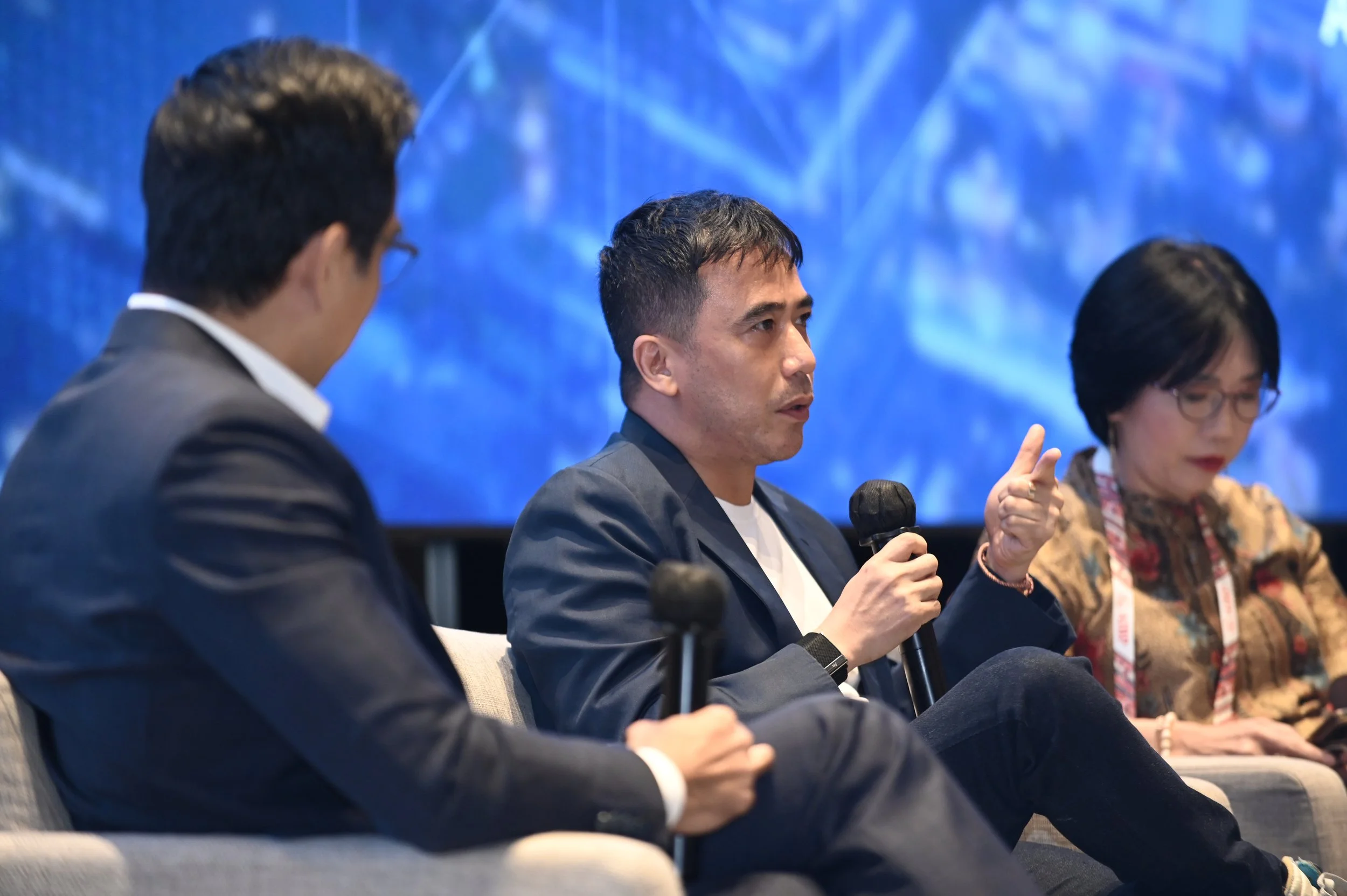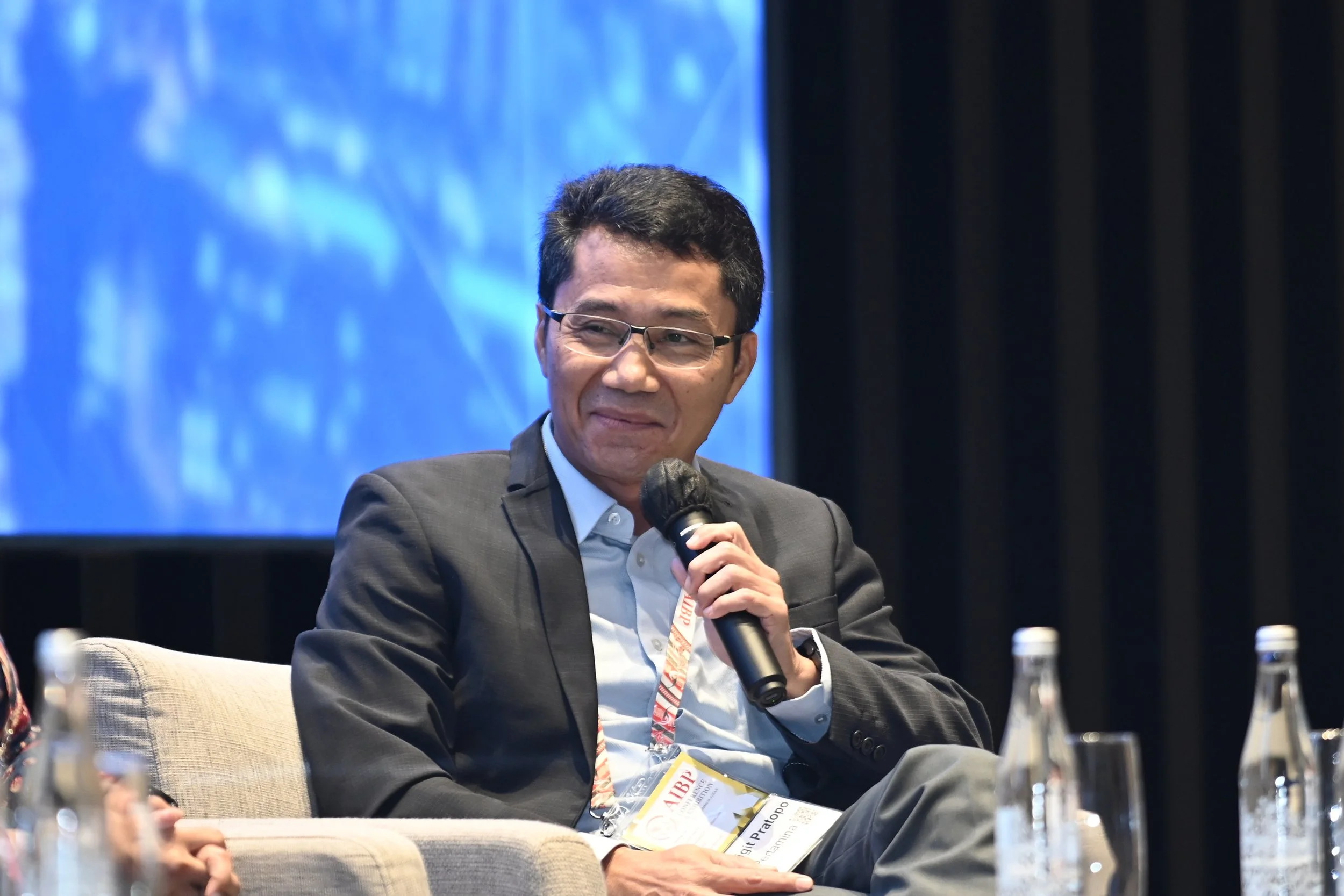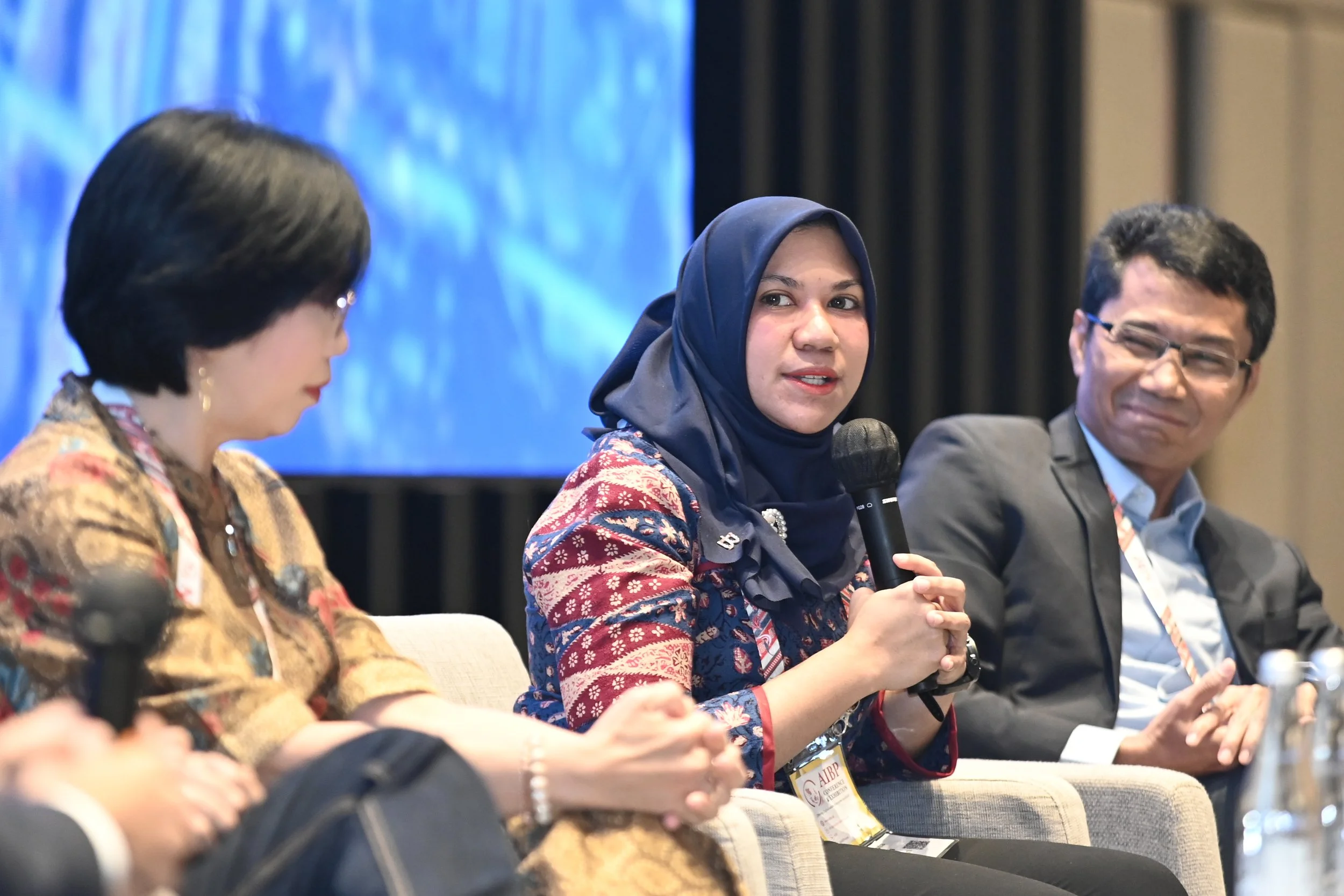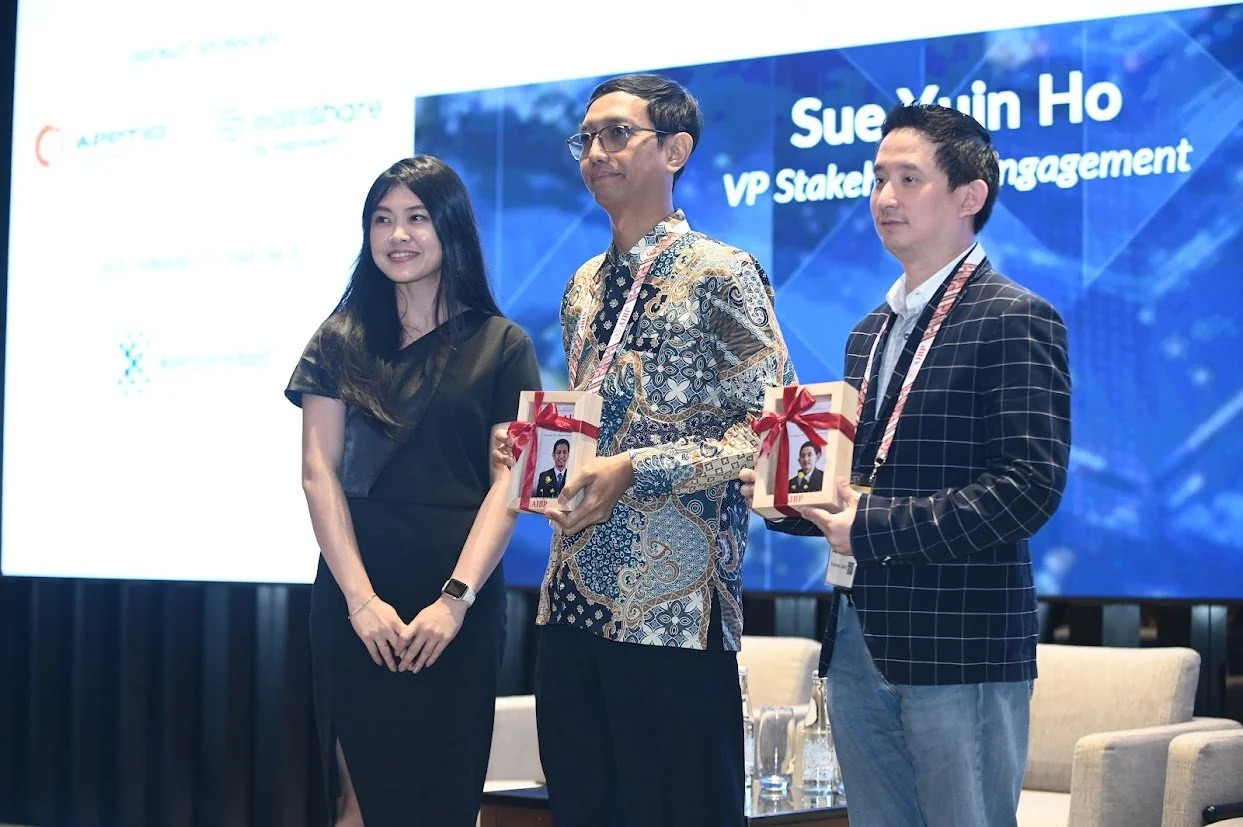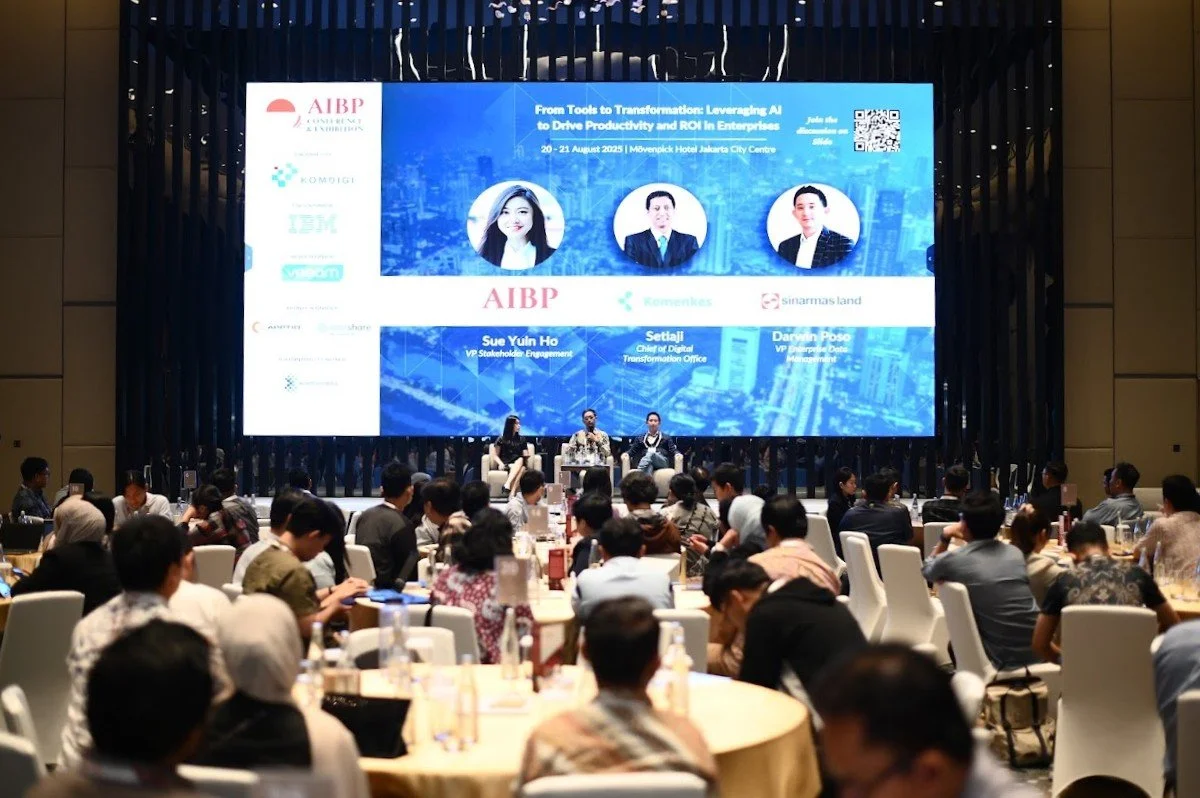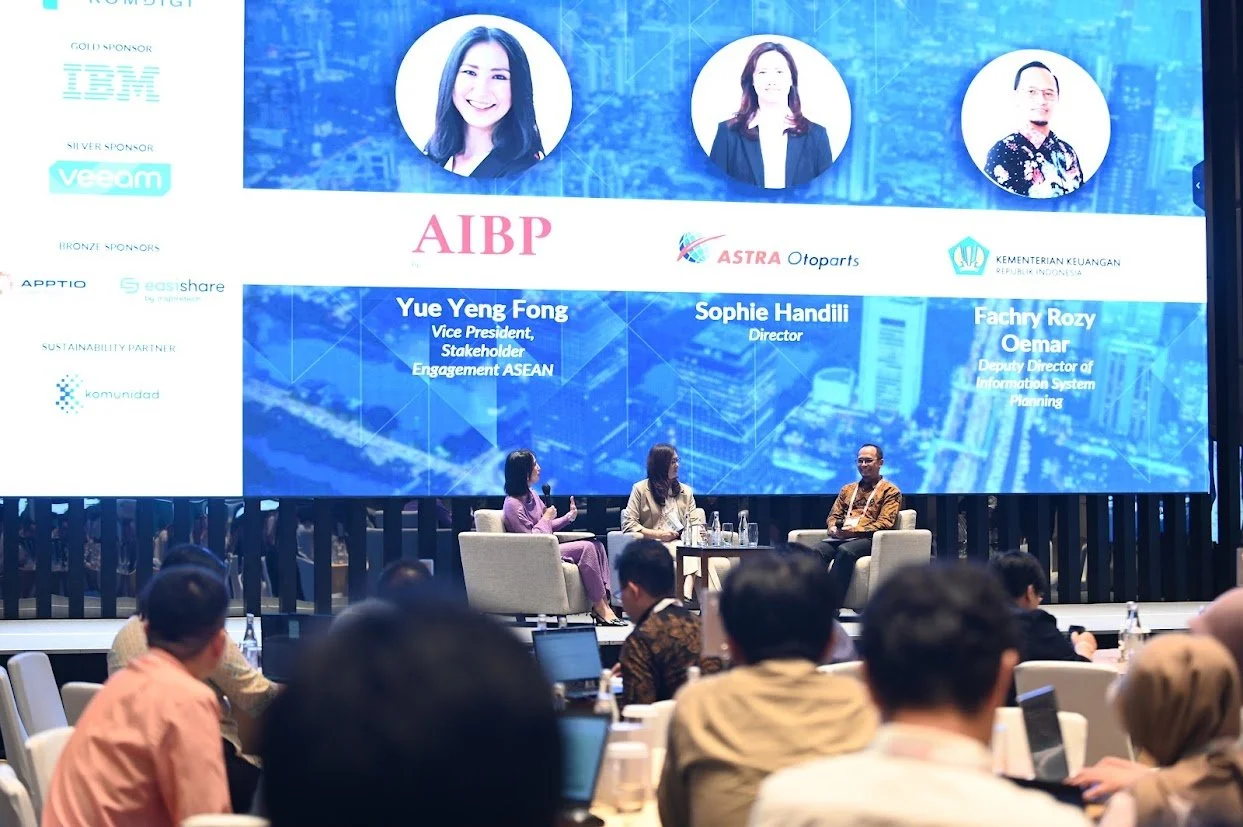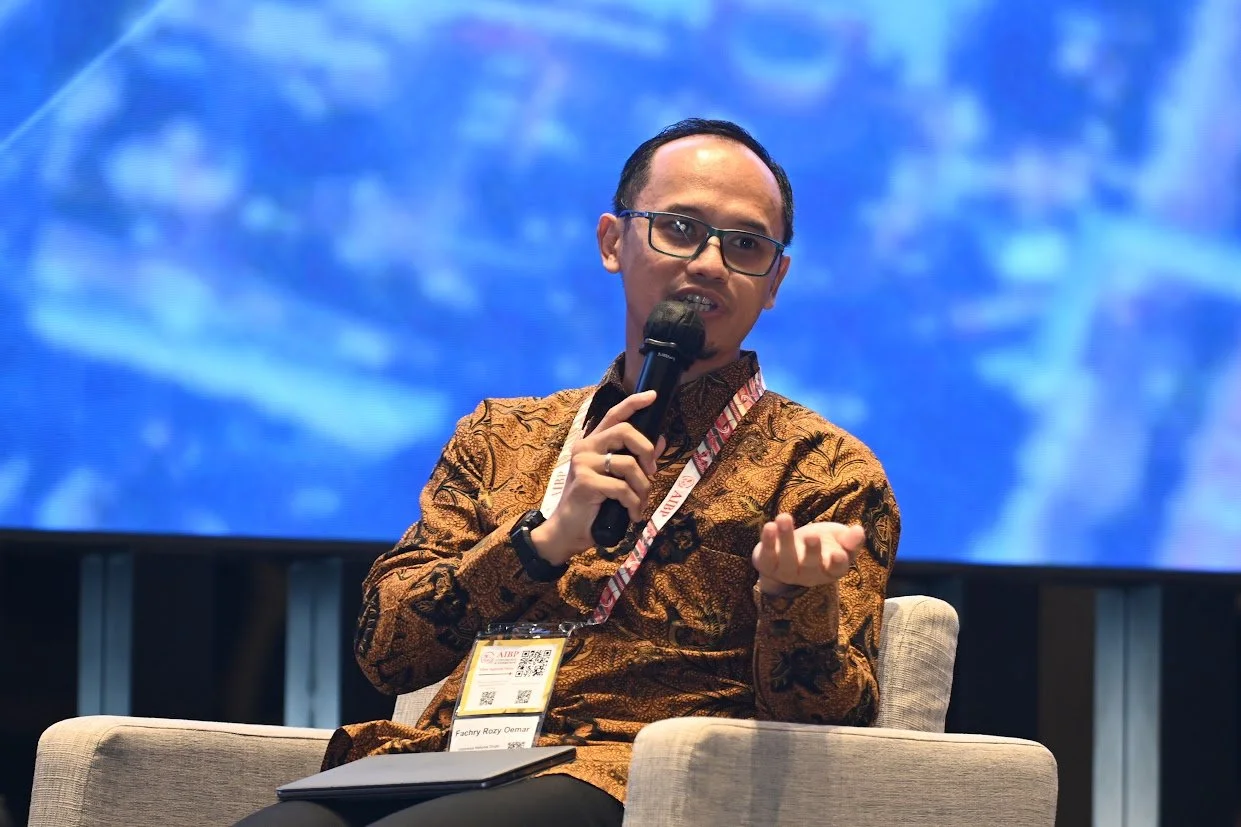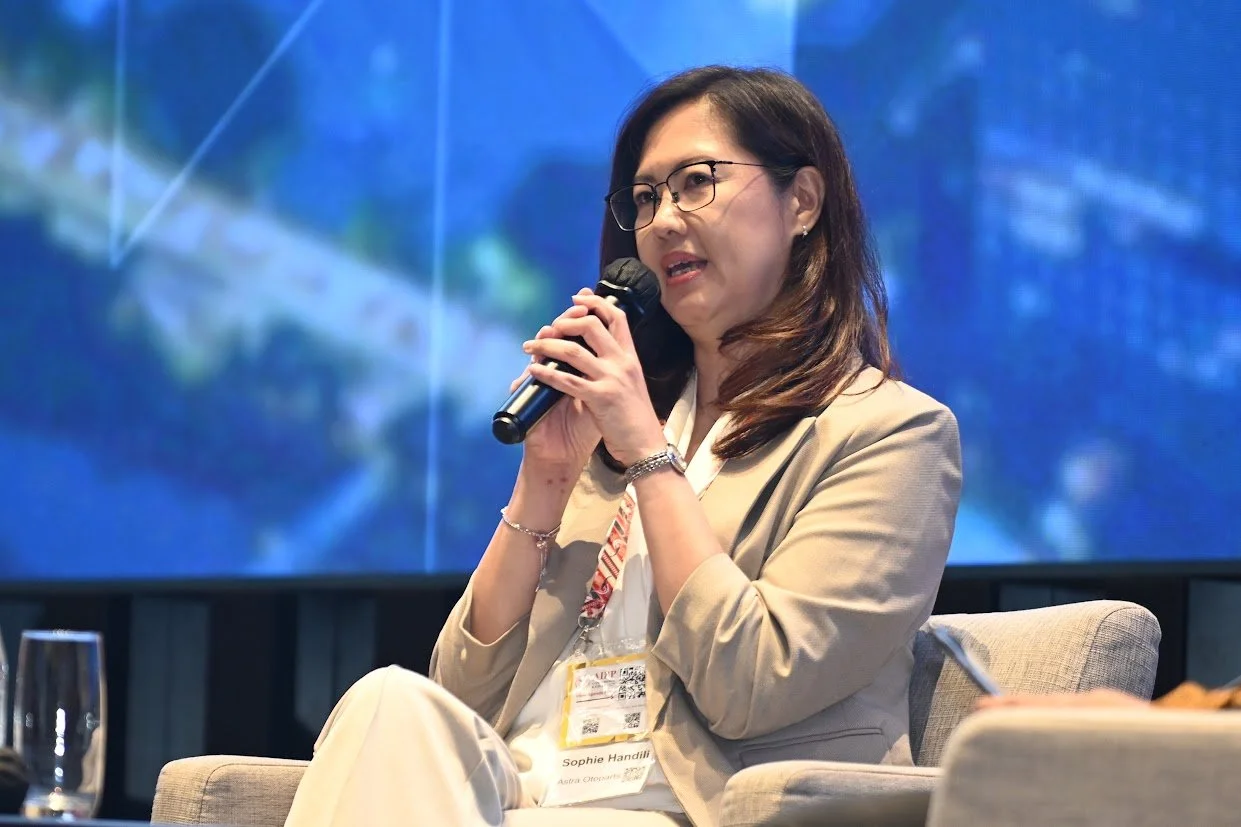Scaling AI Responsibly for Indonesia’s Digital Future - Day 1 AIBP Conference & Exhibition Indonesia
The AIBP Conference & Exhibition Indonesia 2025 convened senior executives, regulators, and digital leaders to explore how artificial intelligence is shaping enterprise transformation and national competitiveness. Opening the discussions, Sonny Hendra Sudaryana, Director of the Directorate of Digital Ecosystems Development at the Ministry of Communication and Digital Affairs (KOMDIGI), outlined the government’s commitment to strengthening digital ecosystems and governance frameworks as foundations for growth. The event also celebrated the achievements of the Enterprise Innovation Awards, recognising Bank Central Asia and Bank Mandiri for their outstanding digital initiatives, which are setting new benchmarks for innovation in Indonesia.
From Vision to Scale: Accelerating AI Transformation
The first keynote panel, moderated by Irza Suprapto, CEO of Industry Platform, positioned AI not as an experiment but as a strategic enabler of Indonesia’s global competitiveness. Lily Wongso, EVP of Enterprise IT Architecture, Data Management and Service Quality at BCA, noted that “AI must be treated as a long-term capability rather than a short-term project.” Sigit Pratopo, SVP of Integrated Enterprise Data and Command Centre at Pertamina, highlighted the importance of infrastructure, while Paul Soegianto, Chief of Group Digital Strategy at Astra, stressed that “partnerships and collaboration across industries are key to scaling responsibly.” Kurnia Sofia Rosyada, Group Head of Enterprise Data Analytics at Bank Mandiri, echoed the call for strong data foundations and ethical safeguards, pointing out that speed of adoption alone is not enough and that measurable business impact must remain the benchmark.
The ROI Imperative: Turning AI into Measurable Value
The second session shifted focus to the critical question of how enterprises can quantify AI’s return on investment. Setiaji, Chief of the Digital Transformation Office at the Ministry of Health, shared how AI is already improving healthcare delivery, from patient support systems to predictive analytics, but stressed that “ROI must be measured not just in cost savings, but in patient safety and outcomes.” Darwin Poso, VP of Enterprise Data Management at Sinarmas Land, reflected on real estate’s transformation, noting that “AI is enabling smarter urban planning and workflow automation, but its success depends on overcoming workforce resistance and embedding technology into everyday operations.” The discussion reinforced that true ROI extends beyond productivity gains to long-term resilience and trust.
The Economics of Innovation: Measuring What Matters
The closing panel explored the broader economics of digital innovation, highlighting the thin line between genuine transformation and digital theatre. Sophie Handili, Director at Astra Otoparts, spoke about automation and product quality, underscoring that “value comes when innovation translates into better outcomes for customers and employees alike.” Fachry Rozy Oemar, Deputy Director of Information System Planning at the Indonesia National Single Window Agency, Ministry of Finance, explained how Regulatory Impact Analysis is being used to ensure reforms are measurable and effective. Both speakers reinforced the importance of frameworks such as Technology Business Management to align IT investment with enterprise strategy. Collectively, the panel stressed that digital transformation must be evaluated not just in financial terms, but also in societal impact and sustained competitiveness.
Beyond Adoption: Defining Responsible AI Leadership
The conversations at AIBP C&E Indonesia reinforced that digital transformation is a journey that demands adaptability, governance, and strong leadership. A consensus emerged that AI adoption is no longer about whether it will happen, but about how it should be scaled responsibly. For Indonesia, the opportunity is immense. As the largest economy in Southeast Asia, the nation has the scale and ambition to lead the region’s AI-driven transformation. Yet true leadership will depend not only on technological advances but also on the ability to build trust, safeguard data, and ensure that innovation is anchored in accountability and inclusivity.
As Indonesia deepens its role in ASEAN’s digital economy, the path forward is clear. The value of AI lies not in novelty or isolated pilots, but in its ability to deliver sustainable impact at scale. By fostering cross-sector collaboration, investing in continuous upskilling, and embedding ethical frameworks at every level, enterprises and policymakers can ensure AI becomes a catalyst for long-term growth. The choices made in the coming years will define not just enterprise success, but Indonesia’s standing in the global digital economy. With trust, transparency, and strategic foresight as guiding principles, Indonesia has the opportunity to set the standard for what responsible AI leadership looks like in Southeast Asia.

